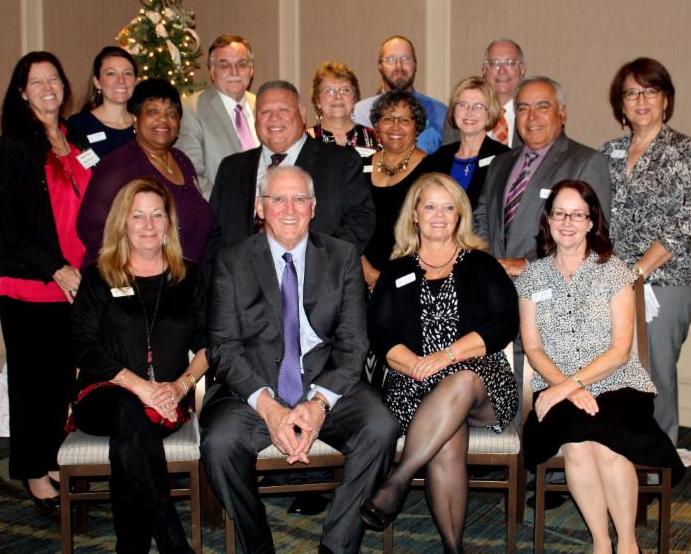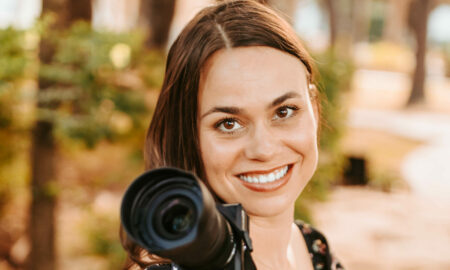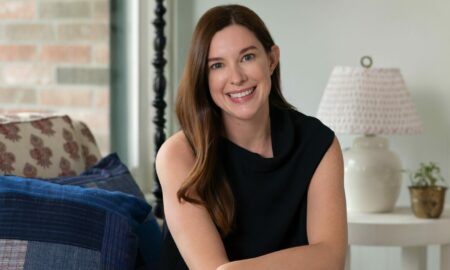

Today we’d like to introduce you to John Sage.
John, please share your story with us. How did you get to where you are today?
I founded Bridges To Life (BTL) in 1998 after experiencing a life-changing tragedy in my family. My beloved younger sister, Marilyn, to whom I’d always been especially close, was murdered in 1993 here in Houston. She was a beautiful person and her tragic death affected many people. Though the two killers were caught, tried, and received death penalty sentences, I continued to be haunted by my sister’s murder and endured an extremely difficult period for several years following the tragedy.
After much soul-searching, in early 1998 I volunteered for a pilot prison program that brought people who had been seriously affected by crime into the prisons to meet with inmates in an effort to put a face on crime. That experience had a dramatic impact on me, spurring my healing forward and providing the catalyst for founding BTL later that year. I created BTL because I wanted to prevent other families from experiencing the gut-wrenching pain of a murdered loved one and to share this opportunity for healing from the devastation wrought by crime.
We’re always bombarded by how great it is to pursue your passion, etc – but we’ve spoken with enough people to know that it’s not always easy. Overall, would you say things have been easy for you?
The period of my life after losing Marilyn was a long and painful journey of about five years, and a number of factors helped me reach a better place of forgiveness and peace about her murder. At the core of my healing was, and still is, my faith in God and my belief in the teachings of Jesus Christ.
My belief in something much bigger than myself and worldly issues allowed me to surrender the burden of anger, resentment, revenge, and anxiety. My faith deepened in those years to a point of trusting in God and seeking God’s will for my life as my highest priority.
The growth of Bridges To Life has exceeded all my expectations. The road to such success is never smooth, but I have continually seen God’s grace and miracles all along the way. The program I planned as a small regional ministry almost 20 years ago has now been implemented in over 140 facilities in Texas, 11 other states, and 5 foreign countries! Since our first project that graduated 21 inmates in 1999, over 38,000 men and women have completed the 14-week BTL program with the help of over 2,200 volunteers.
So let’s switch gears a bit and go into the Bridges To Life story. Tell us more about the business.
Bridges To Life is a 14-week restorative justice program for incarcerated individuals that is facilitated by volunteers, some of whom may be victims of crime. In addition to exploring curriculum topics from confession and repentance to accountability and restitution, crime victim speakers share their stories on four occasions over the course of the project. The book used in the BTL curriculum, “Restoring Peace” by Kirk Blackard, also includes stories of crime victims. This “victim impact” approach is the key to the program’s effectiveness.
By hearing firsthand how a crime impacts not only the individual victim but their families, friends, and communities, the eyes of inmates are opened to the real and far-reaching effects of crime. This process sparks the development of empathy, leading them to take responsibility for their actions and opening their hearts to lasting change.
The unique concept of bringing crime victims into the prison to share their stories with convicted criminals was not initially well received by the prison system. The process was a paradigm shift in the philosophy and practice of prison rehabilitation. Year by year, the impact of the BTL program has become more evident to prison wardens, chaplains, inmates, and volunteers.
By changing lives of the incarcerated, the prisons are safer and the number of released inmates who continue to commit crimes and return to prison (the recidivism rate) is reduced. The recidivism rate of BTL graduates is only 14.5%, significantly lower than state and national averages (21.5% and 38-40%, respectively). BTL makes our communities safer, saves taxpayers millions of dollars in reincarceration costs, and enhances the spiritual growth of the participants.
Has luck played a meaningful role in your life and business?
My father used to say, “The harder I work, the luckier I get.” The success and growth of BTL is the result of many thousands of hours put in by our devoted volunteers, the support of our donors, and the passion of BTL staff and board members for this work. I stand in awe at the end of the 14-week project when I have witnessed a very troubled and confused individual start to make little changes and increase his or her awareness week by week.
My greatest satisfaction is knowing that by participating in the BTL process, positive changes will occur and communities will be safer. In fact, lives are saved as a result of BTL impacting these inmates prior to release from prison. Both volunteers and offenders experience significant growth in their level of awareness, understanding, compassion, and spirituality through our program. Helping inmates change their thinking leads to making better choices once they are released from prison.
In this way, BTL helps improve society and the world we live in. I continually see miracles happen and it is truly inspirational to witness this, inmate after inmate, and year after year.
Pricing:
- “Restoring Peace” book used in BTL curriculum – $10
- BTL Study Guide (companion to “Restoring Peace”) – $5
Contact Info:
- Website: www.bridgestolife.org
- Phone: 713-463-7200
- Email: contact@bridgestolife.org
- Facebook: https://www.facebook.com/bridgestolife/





Getting in touch: VoyageChicago is built on recommendations from the community; it’s how we uncover hidden gems, so if you know someone who deserves recognition please let us know here.


















Garry Lee Guilloud, DVM
January 11, 2019 at 3:56 pm
John,
You spoke to my Rotary Club about 15 years ago. Would you or Kirk be interested in speaking to us again? We are still a small club, but we are active with scholarships for Alief, and Spring Branch high school students and of course Polio Plus and other Rotary international projects.
We meet at the Rio Ranch Restaurant 9999 Westheimer Wednesdays 7:30 AM. March 13,17, or 20.
My phone # is 832 443 8161.
Garry